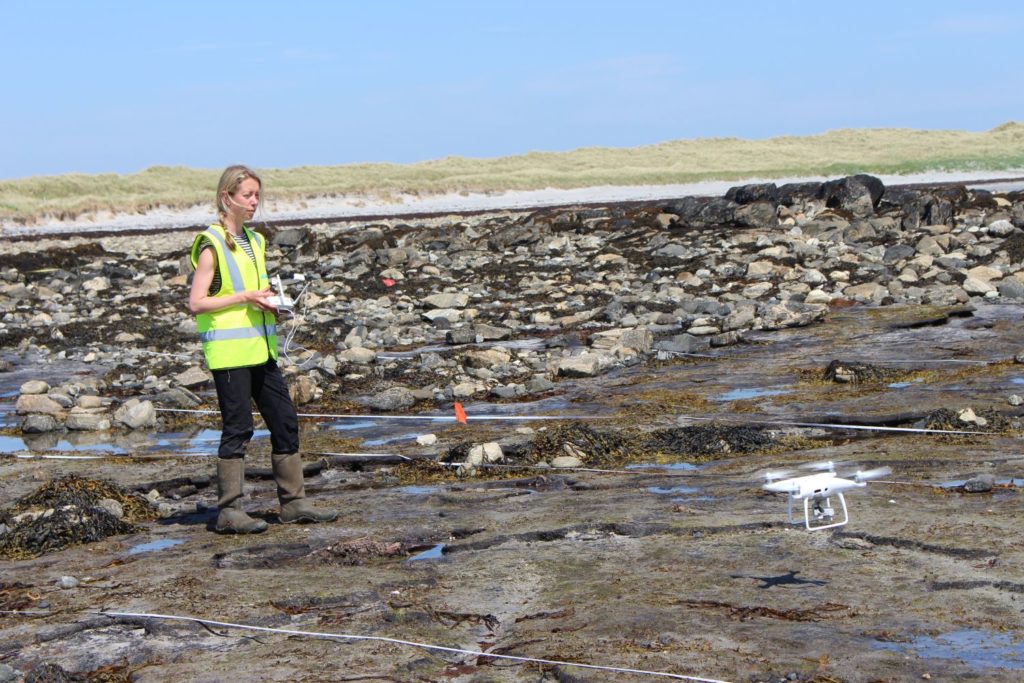
| Academic Year | 2020-2021 |
| e.graham.20@abdn.ac.uk | |
| Institution | University of Aberdeen |
Biography
Pronouns: she/her
School: School of Geociences
Project: Mitigating the impacts of environmental change on cultural heritage using drone-based survey techniques
Supervisors: Professor Gordon Noble and Dr Patrick Gleeson
Undergraduate Education: BA (Hons) Egyptology & Ancient History, University of Wales, Swansea
Postgraduate Education: MA Practical Archaeology, University of Birmingham
Research: Much of Scotland’s rich archaeological heritage is located at the coast, so is vulnerable to destruction through erosion and other coastal processes which will be exacerbated by climate change. My research aims to mitigate those impacts by employing drone-based survey methods to map fragile sites and coastlines, track changes in their condition and prospect for as-yet undiscovered sites, targeting a variety of different landscapes and environments.
Fieldwork will involve low-level aerial photography which will be used to generate high-resolution 3-dimensional models, employing structure from motion software to build Digital Surface Models and orthorectified photographs. I’ll also use drone-mounted LiDAR survey and multi-spectral cameras to detect buried features and test the effectiveness of different techniques. The results of these surveys will then form the basis of GIS-based analysis and visualisation.
As well as providing a detailed record and generating new information about individual sites and their landscape setting, these surveys will document their current condition, assess their vulnerability and provide a baseline against which future changes can be mapped. This can also be used to assess coastal change at local and landscape level, through comparison with past surveys and historic maps. Survey results will be used in analysis of recent coastal loss, reconstruction of past coastlines, calculations of erosion rates and projections of future vulnerability.
I also hope to integrate community engagement by incorporating traditional ground-based recording methods. In the context of coastal change, rapid responses and continuous monitoring are essential, for which local communities are ideally placed.
Ultimately, I hope that this research can inform decisions about prioritisation of sites for further investigation, contribute to improved management of Scotland’s threatened coastal archaeological resource, and develop tools for archaeologists and heritage managers to mitigate the impacts of climate-driven coastal and environmental change.
Other:
- Twitter: @ellster17 – I’ll be tweeting about my research, as well as archaeology, climate change, the coast and generally sharing my love of the Scottish landscape
- ORCID: https://orcid.org/0000-0002-2802-1351 for articles about some of my recent projects and research
- Other projects and organisations I hope to collaborate with:The SCAPE Trust: https://scapetrust.org/The results of SCAPE’s recent SCHARP Project: http://scharp.co.uk/Dynamic Coast: http://www.dynamiccoast.com/





















































